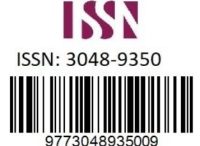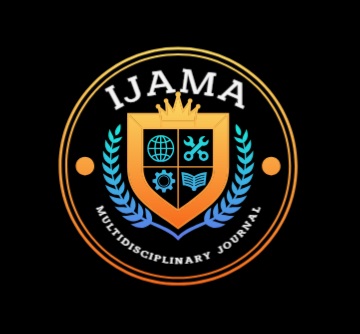International Journal of Advanced Multidisciplinary Application (IJAMA)

Author Benefits
Author : Dr. Veerya Nayak Gugulothu1, M. Thirupathi2
Affiliation : Assistant Professor of English, KITS(S)
Volume/Issue : Volume 2 Issue 4 -2025/April
DOI:10.5281/zenodo.16744158.
OpenAIRE : https://explore.openaire.eu/search/publication?pid=10.5281%2Fzenodo.16744159
Author Indexing :
Abstract: In the dynamic landscape of English language teaching and learning, the quest for methodologies that transcend traditional paradigms remains incessant. Contextualization emerges as a transformative technique, wielding the power to redefine the contours of pedagogical efficacy. At its core, contextualization
embodies a symbiotic fusion of linguistic instruction with the lived experiences and immediate surroundings of learners, thereby engendering a milieu conducive to heightened linguistic fluency and comprehension. Against the backdrop of multilingualism, the exigency to cultivate English language proficiency assumes
paramount significance, necessitating a departure from conventional pedagogical approaches towards more innovative and inclusive methodologies. This experimental inquiry endeavour to illuminate the pivotal role of contextualization within the ambit of English language instruction, with a specific focus on the engineering education domain. By harnessing the intrinsic synergy between learner experiences and social interactions, this study seeks to unravel the intricate dynamics underpinning language acquisition and communication proficiency within the English language milieu. Through a judicious integration of contextualization techniques, learners are empowered to transcend linguistic barriers and embrace the nuances of the target language with unparalleled dexterity. Moreover, the strategic incorporation of authentic materials and real-world examples serves as a catalyst for sustained learner engagement and comprehension, thereby fostering an environment conducive to uninhibited linguistic exploration and acquisition. The ensuing data analysis promises to illuminate hitherto uncharted pathways towards the cultivation of English language proficiency, thereby enriching the pedagogical discourse with empirically-grounded insights and informed conclusions.
Keywords: contextualization, English language teaching, multilingualism, authentic materials, pedagogical
innovation, communication proficiency
References
- Allwright, R. L. (1998). Contextual factors in classroom language learning: An overview.
2. Dictionary, O. (2000). Oxford advanced learner’s dictionary. Retrieved from Oxford Learner Dictionaries.
3. Fears, B. A. (2010). A Review of “Contextualizing Theological Education” Edited by Theodore Brelsford and P. Alice Rogers. Cleveland, OH: Pilgrim Press, 2008. 196 pp., $28.00 (paperback).
4. Hassan, Z. M. (2014). Language contextualisation and culture. Procedia-Social and Behavioral Sciences, 136, 31-35.https://doi.org/10.1016/j.sbspro.2014.05.282
5. Maristy, H. S. (2020, August). Contextualization to enhance students’ Writing Ability. In 1st International Conference on Language, Literature, and Arts Education (ICLLAE 2019) (pp.196-202). Atlantis Press.
6. Paliwal, R., &Subramaniam, C. N. (2006). Contextualising the curriculum. Contemporary Education Dialogue, 4(1), 25-51.https://doi.org/10.1177/0973184913411130
7. Pustika, R. (2010). Improving Reading Comprehension Ability Using Authentic Materials For Grade Eight Students Of MTSN Ngemplak, Yogyakarta. Topics in Language Disorders, 24(1),92-93.
8. Savic, V., & Shin, J. K. (2013). Contextualising language learning through stories in Serbia.
9. Wilson, A. (2021). Context and Contextualisation: Hallmarks of Authentic Spoken English. Rechercheetpratiquespédagogiques en langues. Cahiers de
l’Apliut, 40(1).https://doi.org/10.4000/apliut.8547
10. Yılmaz, D., &Karatepe, Ç. İ. Ğ. D. E. M. (2013). Contextualisation in the EFL Primary Classroom: A neglected issue in teacher education.
Contacts
editorinchief.ijama@gmail.com
Working days : Mon- Saturday
Working Hours :9 am -5:30 Pm


